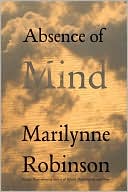Category Books
- Fiction Books & Literature
- Graphic Novels
- Horror
- Mystery & Crime
- Poetry
- Romance Books
- Science Fiction & Fantasy
- Thrillers
- Westerns
- Ages 0-2
- Ages 3-5
- Ages 6-8
- Ages 9-12
- Teens
- Children's Books
- African Americans
- Antiques & Collectibles
- Art, Architecture & Photography
- Bibles & Bible Studies
- Biography
- Business Books
- Christianity
- Computer Books & Technology Books
- Cookbooks, Food & Wine
- Crafts & Hobbies Books
- Education & Teaching
- Engineering
- Entertainment
- Foreign Languages
- Game Books
- Gay & Lesbian
- Health Books, Diet & Fitness Books
- History
- Home & Garden
- Humor Books
- Judaism & Judaica
- Law
- Medical Books
- New Age & Spirituality
- Nonfiction
- Parenting & Family
- Pets
- Philosophy
- Political Books & Current Events Books
- Psychology & Psychotherapy
- Reference
- Religion Books
- Science & Nature
- Self Improvement
- Sex & Relationships
- Social Sciences
- Sports & Adventure
- Study Guides & Test Prep
- Travel
- True Crime
- Weddings
- Women's Studies
Absence of Mind: The Dispelling of Inwardness from the Modern Myth of the Self »

Authors: Marilynne Robinson
ISBN-13: 9780300145182, ISBN-10: 0300145187
Format: Hardcover
Publisher: Yale University Press
Date Published: May 2010
Edition: (Non-applicable)
Author Biography: Marilynne Robinson
Pulitzer Prize winner Marilynne Robinson writes "quiet" novels of astonishing beauty, peopled with unforgettable characters, and suffused in deeply spiritual themes like faith, atonement, and redemption.
Book Synopsis
In this ambitious book, acclaimed writer Marilynne Robinson applies her astute intellect to some of the most vexing topics in the history of human thought—science, religion, and consciousness. Crafted with the same care and insight as her award-winning novels, Absence of Mind challenges postmodern atheists who crusade against religion under the banner of science. In Robinson’s view, scientific reasoning does not denote a sense of logical infallibility, as thinkers like Richard Dawkins might suggest. Instead, in its purest form, science represents a search for answers. It engages the problem of knowledge, an aspect of the mystery of consciousness, rather than providing a simple and final model of reality.
By defending the importance of individual reflection, Robinson celebrates the power and variety of human consciousness in the tradition of William James. She explores the nature of subjectivity and considers the culture in which Sigmund Freud was situated and its influence on his model of self and civilization. Through keen interpretations of language, emotion, science, and poetry, Absence of Mind restores human consciousness to its central place in the religion-science debate.
The Barnes & Noble Review
The much-admired Marilynne Robinson, best known for her two recent theologically-minded novels (Gilead , 2004, and Home, 2008), assays some straightforward religious thinking in Absence of Mind, a dense and challenging short work, originally delivered as a lecture series at Yale. Robinson’s sharp reasoning goes directly to the heart of the current debate between the neo-Darwinian atheists and those, like Robinson, who hope to preserve our sense of self and soul. She wisely ignores the distracting "religion versus science" argument and locates the origins of the present-day conflict in a wider philosophical frame. Post-enlightenment positivism encouraged thinkers to believe that metaphysics was outdated, and that specific material forces could account for human behavior. If Marx posited an economic base, Freud would argue for the importance of the unconscious; such reductive thinking became the hallmark of modern thought. In more recent days, neurologists have claimed to locate all human activity in specific areas of our brains, while evolutionary biologists have found explanations for behavior in some kind of programmatic nature. All these theories rely, in Robinson’s words, on the same sort of parascientific reasoning. Her discussions of well-known neurologists, biologists, and psychologists -- from Richard Dawkins and Antonio Damasio to Steven Pinker and Daniel Dennett -- are trenchant, and often devastatingly on target. She gets to the heart of the matter -- and that heart, she finds, is one with our soul, that dimension of ourselves that defies material explanation.
Don’t mistake this brief but challenging book for an anti-scientific jeremiad. Quite the contrary, for Robinson admires all that genuine science continues to offer us. What she rejects is the intellectual arrogance of overly deterministic thought. Her wonderful defense of an expansive self in a diminishing age deserves a wide readership -- among other virtues, it is the perfect antidote to all those pop atheist screeds.
--Thomas De Pietro
Table of Contents
Subjects
 All Religion
All Religion  General & Miscellaneous Religion
General & Miscellaneous ReligionNonfiction
 Philosophy
Philosophy  Major Branches of Philosophical Study
Major Branches of Philosophical StudyPhilosophy
 Major Branches of Philosophical Study
Major Branches of Philosophical Study  Mind, Philosophy of
Mind, Philosophy ofReligion Books
 All Religion
All Religion  General & Miscellaneous Religion
General & Miscellaneous ReligionScience & Nature
 All Science & Nature
All Science & Nature  Science - General & Miscellaneous
Science - General & MiscellaneousChristianity
 Christianity
Christianity  All Religion
All ReligionNonfiction
 Religion
Religion  All Religion
All ReligionNonfiction
 Science & Nature
Science & Nature  All Science & Nature
All Science & NatureReligion Books
 Christianity
Christianity  All Religion
All Religion
